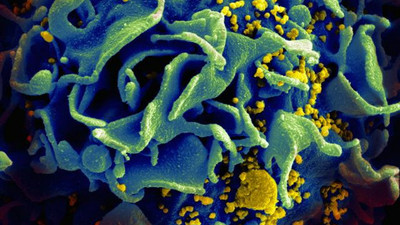Psychologist answers why people are optimistic about the 'coming threat'

Although it is a new coronavirus infection (COVID-19) that has caused many deaths mainly in Europe and the United States, as of February 2020, President Trump and many other politicians and celebrities downplay its influence. was doing. There are several reasons why COVID-19 was neglected and its response was delayed, but researchers explain why it is from the psychological side of human beings.
Lethargic global response to COVID-19: How the human brain's failure to assess abstract threats cost us dearly
COVID-19 It is possible to read from the following article how viruses were neglected by celebrities at the beginning of the epidemic. 'Too much exaggeration,' 'The new coronavirus is just a virus like the flu,' 'It's rather difficult to get infected,' and other words are popping up one after another.
`` Summary of remarks by politicians and celebrities at the beginning of the epidemic of new coronavirus infection '' movie that was played 2.8 million times-GIGAZINE

Although there is criticism that COVID-19's risk is not accurately evaluated, it is 'utilized for politics', but Mr. Arash Jabanahat, Associate Professor of Psychiatry at Wayne State University, and Christian University of Michigan Ph.D. student. Kapotescu gives another comment from a psychological perspective.
The two researchers point out that 'humans are not good at linking their' personal experience 'with their' wider historical context. ' In other words, one cannot learn from similar experiences that have occurred in the past. When applied to COVID-19, many could not predict the 'worst case' of what happened in Wuhan would trigger a chain in the world.
Similar events have happened so far. The Great Depression in 1929 caused the stock market to crash, and the Nazi invasion of Poland in 1939 broke out World War II, but the long-term effects of what was happening at the moment were ongoing. Few people were able to evaluate.
The human brain is not good at determining whether an abstract event should have a positive or negative response when it recognizes it. As a result, they may not be able to respond appropriately to 'distant threats.'

On the other hand, for experiences that are close in location and imminent in time, a sense of 'danger' works. I recognize that a person with a gun standing in front of me or an explosion in the opposite street is 'dangerous', but I can not say about the events that occurred in far away land is. It is said that people are tribal-oriented as seeds and are not interested in problems other than 'the tribe to which they belong'.
Initially, Trump also tended to neglect COVID-19, but only when a friend fell into a coma, he recognized the threat and claimed that the number of deaths could reach 100,000 to 200,000.
If the threats are spatially separated or temporary, one fails to make a proper assessment of the impending crisis. As of 2015, Bill Gates warned , 'If there is a disaster that will kill more than 10 million people in the next few decades, it is more likely to be a' infectious virus 'than a war'. has sounded the , but was ready country was not anywhere. The same applies to global warming. Researchers called for us to understand that 'a person fails to judge its impact as long as the threat is far away'.
Related Posts:
in Note, Posted by darkhorse_log







